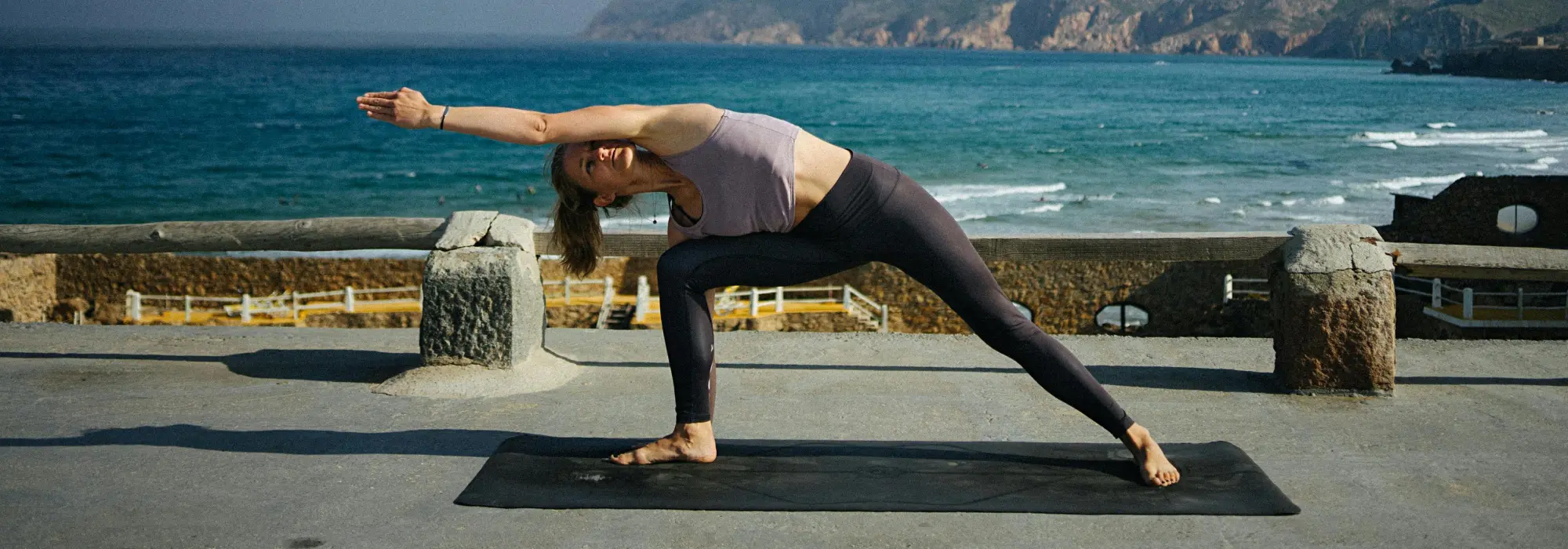
I bent to pick something up. My back pulled. Hamstrings locked. Nothing dramatic—just resistance. I stood slowly. Noticed tightness in my neck. My arms moved oddly. The stiffness had arrived quietly. No injury. No trauma. Just tension stored over time. I hadn’t stretched in weeks. Maybe months. That’s when I started paying attention.
Stretching didn’t fix the pain—but it revealed it
I didn’t stretch to heal. I stretched to check in. The discomfort showed up immediately. My hips resisted. My shoulders clicked. Everything felt closer to its limit. The stretch didn’t solve anything right away. But it told me what was there. What was tight. What was tired. That became part of the point.
I used to think stretching was only for warming up
Before a run, I’d reach down quickly. Pull each leg. Twist side to side. Then stop. That was it. No time. No awareness. Just habit. I never questioned it. But warming up isn’t the same as preparing. And stretching isn’t about movement—it’s about relationship. Between muscle, breath, and resistance.
My flexibility didn’t improve in big leaps—it shifted slowly, sometimes invisibly
I kept stretching every morning. Ten minutes. Then fifteen. Some days it felt pointless. No gain. No shift. But one day I touched my toes again. Another day, my neck turned fully. It never felt sudden. But the results stayed. Quiet progress held longer than loud effort.
The stretch didn’t start in the muscle—it started in the breath
I inhaled too fast. Held tension. Forced position. Nothing released. Then I exhaled slowly. Everything changed. The same pose softened. My legs eased. My hands reached further. Breath turned tightness into space. Stretching wasn’t muscular at first. It was neurological. The breath taught the body where to go.
Some muscles didn’t hurt—but they still held
I only noticed what ached. But pain isn’t the only signal. Some parts were silent. Still locked. My calves were fine until I bent forward. My chest felt fine until I opened my arms. Those areas weren’t weak—they were ignored. Stretching brought them forward. Quiet tension is still tension.
It wasn’t just physical—my mood changed after every stretch
I felt lighter. Not looser—lighter. Less compressed. More fluid. Thoughts moved easier. Breath deepened. I left the mat with more space in my head. Not always joy. Just clarity. Like I had taken up more room inside my body. That part surprised me every time.
I didn’t expect balance to improve from simply stretching
I stood on one foot. Wobbled. Recentered. After weeks of stretching, that changed. Not dramatically—but consistently. My feet found the floor differently. Ankles responded faster. Stretching didn’t build strength. But it supported it. Balance wasn’t trained directly—it was revealed through release.
Some stretches made me angry, and I didn’t know why
I held a pose. My hips resisted. My chest clenched. I felt frustration—not physical, emotional. It made no sense. But it kept happening. Some stretches stirred memories. Discomfort. Thoughts I hadn’t invited. I stayed anyway. The feeling passed. The resistance softened. Sometimes the tightness wasn’t just in tissue.
Static stretching felt different from dynamic, and I needed both
One helped me enter. The other helped me explore. Static held stillness. Dynamic carried me through motion. One wasn’t better. One wasn’t more advanced. They served different needs. I stopped ranking them. I started rotating. Both helped. Just not at the same time. Or in the same way.
Morning stretching didn’t feel the same as evening
In the morning, I felt tight. Foggy. Resistant. But I also felt new. Like I hadn’t moved yet. The body gave slower permission. In the evening, everything felt warmer. Looser. Tired—but fluid. The same stretches held different meanings. Time changed the body. And the stretch responded.
Stretching wasn’t about how far I reached—it was about how much I listened
I used to chase depth. Bend lower. Pull harder. Then I stopped. Started asking instead. Does this feel safe? Does this feel helpful? The answers changed daily. That awareness mattered more than the position. The body didn’t need more achievement. It needed more conversation.
